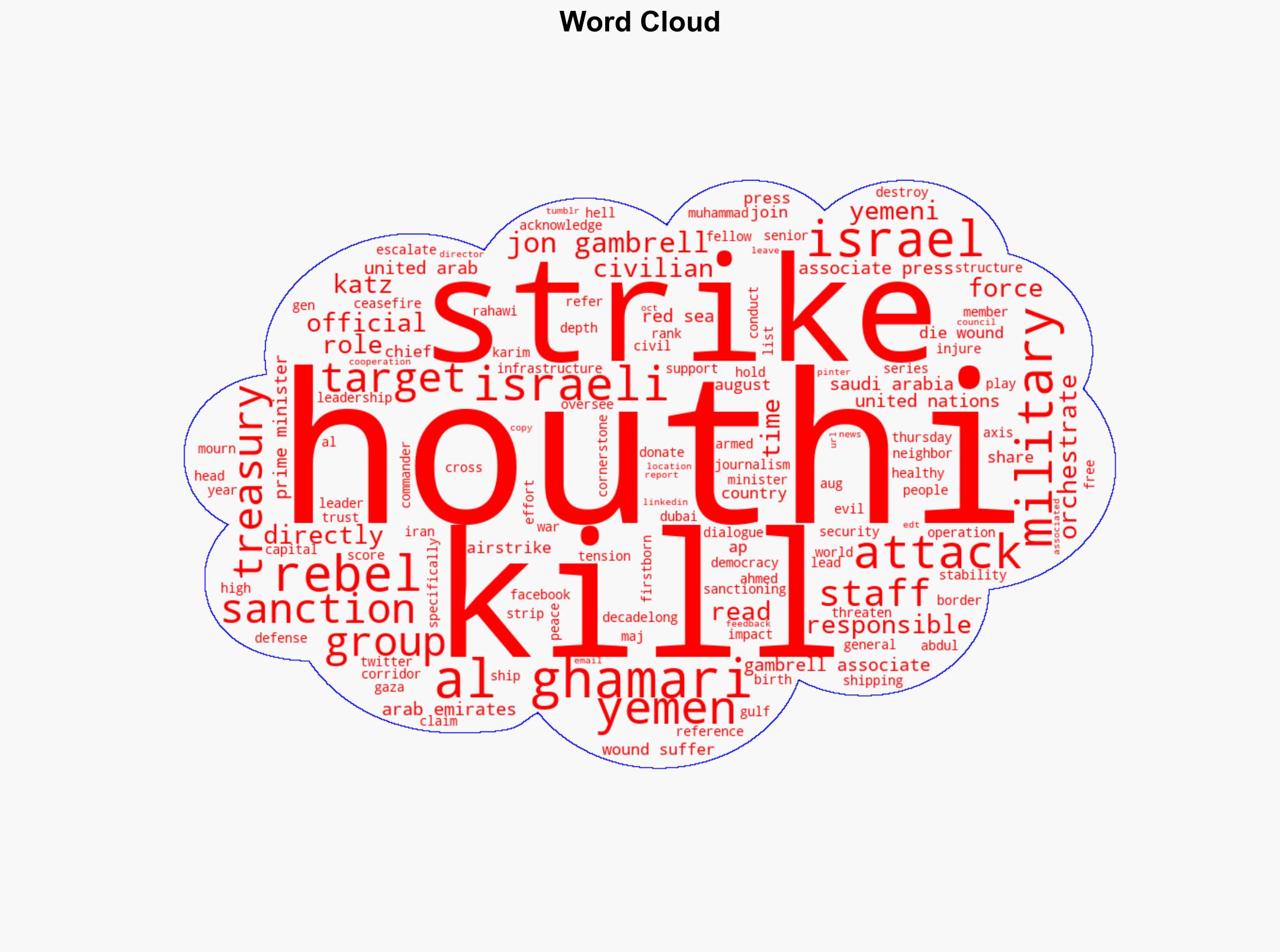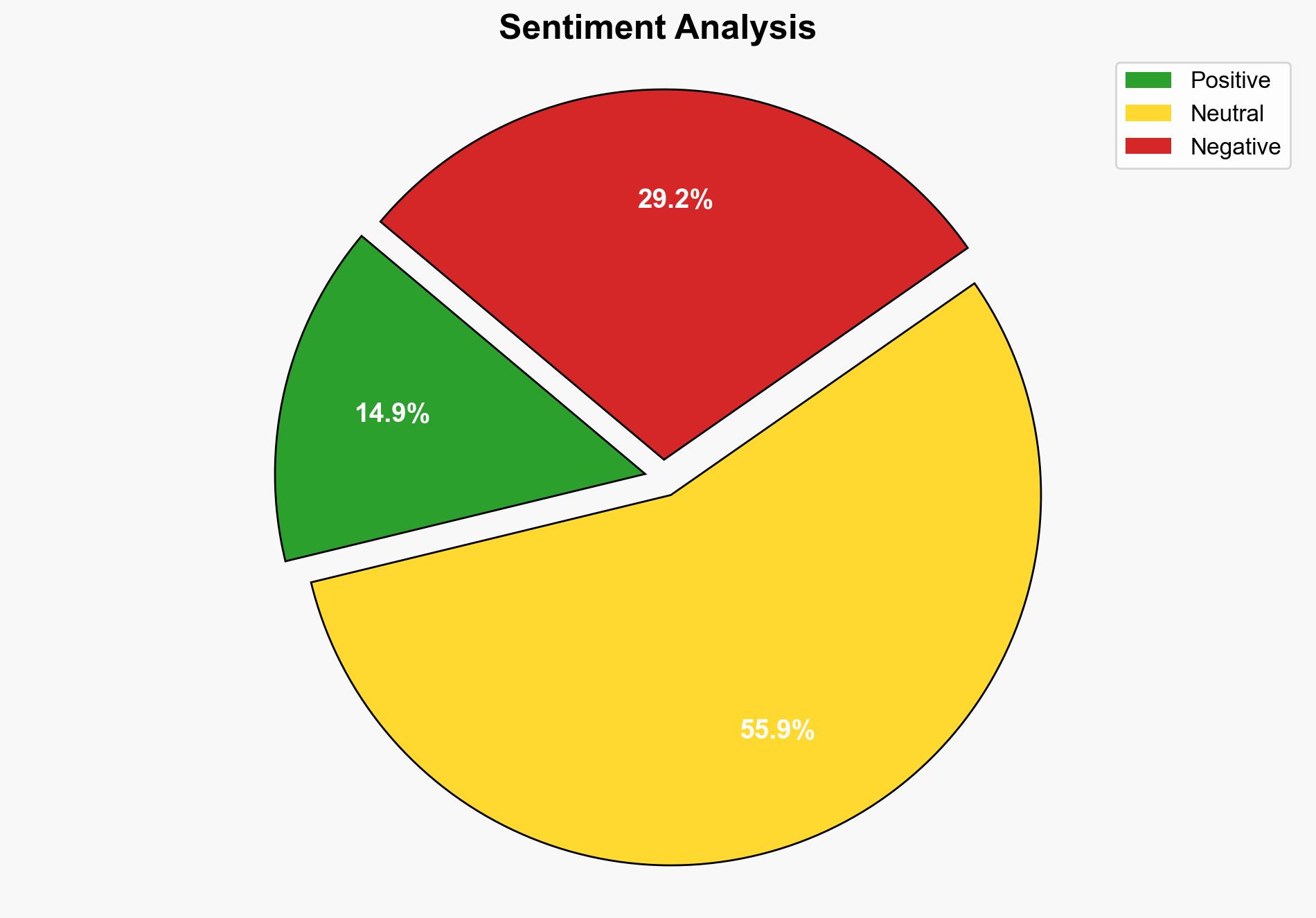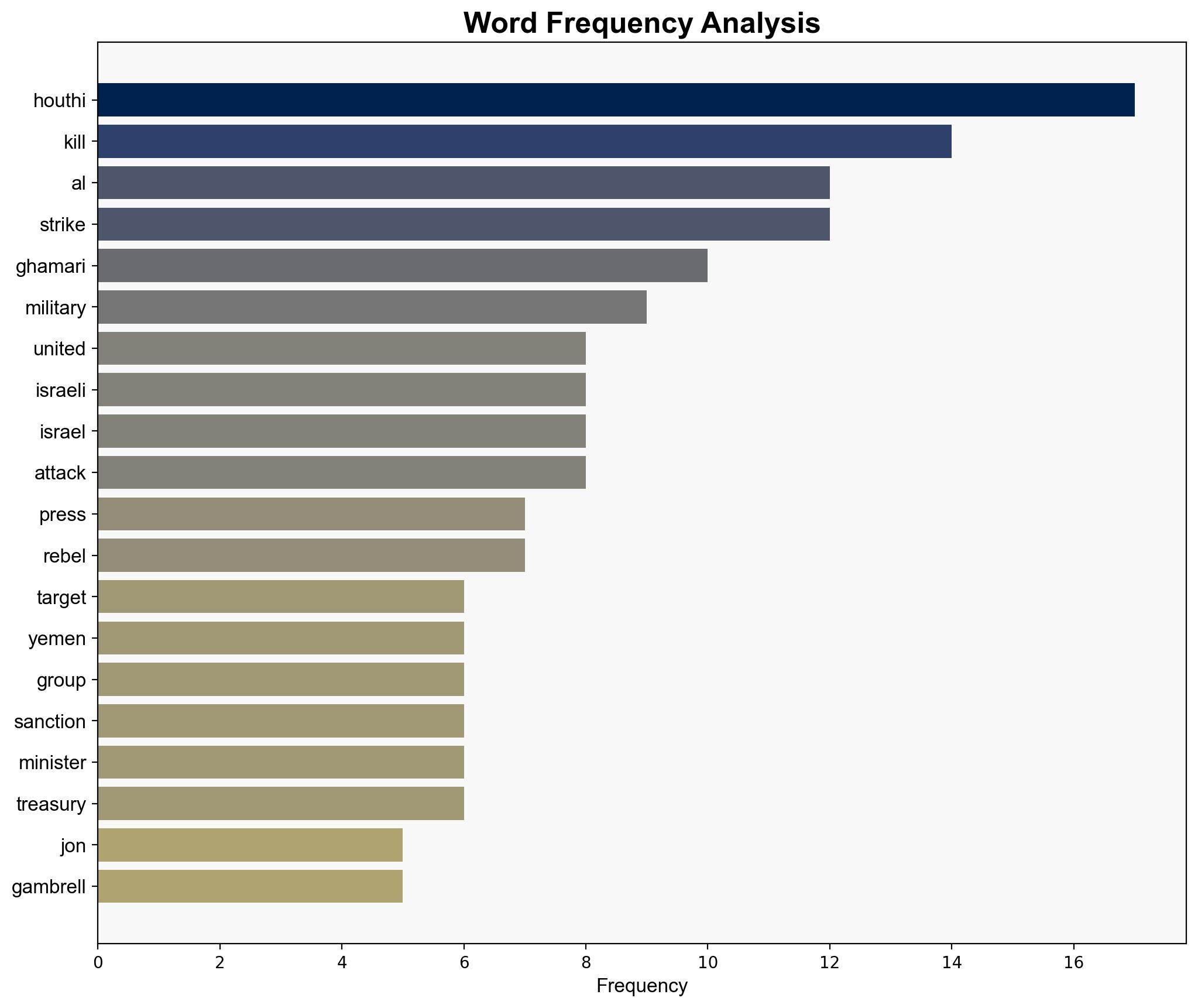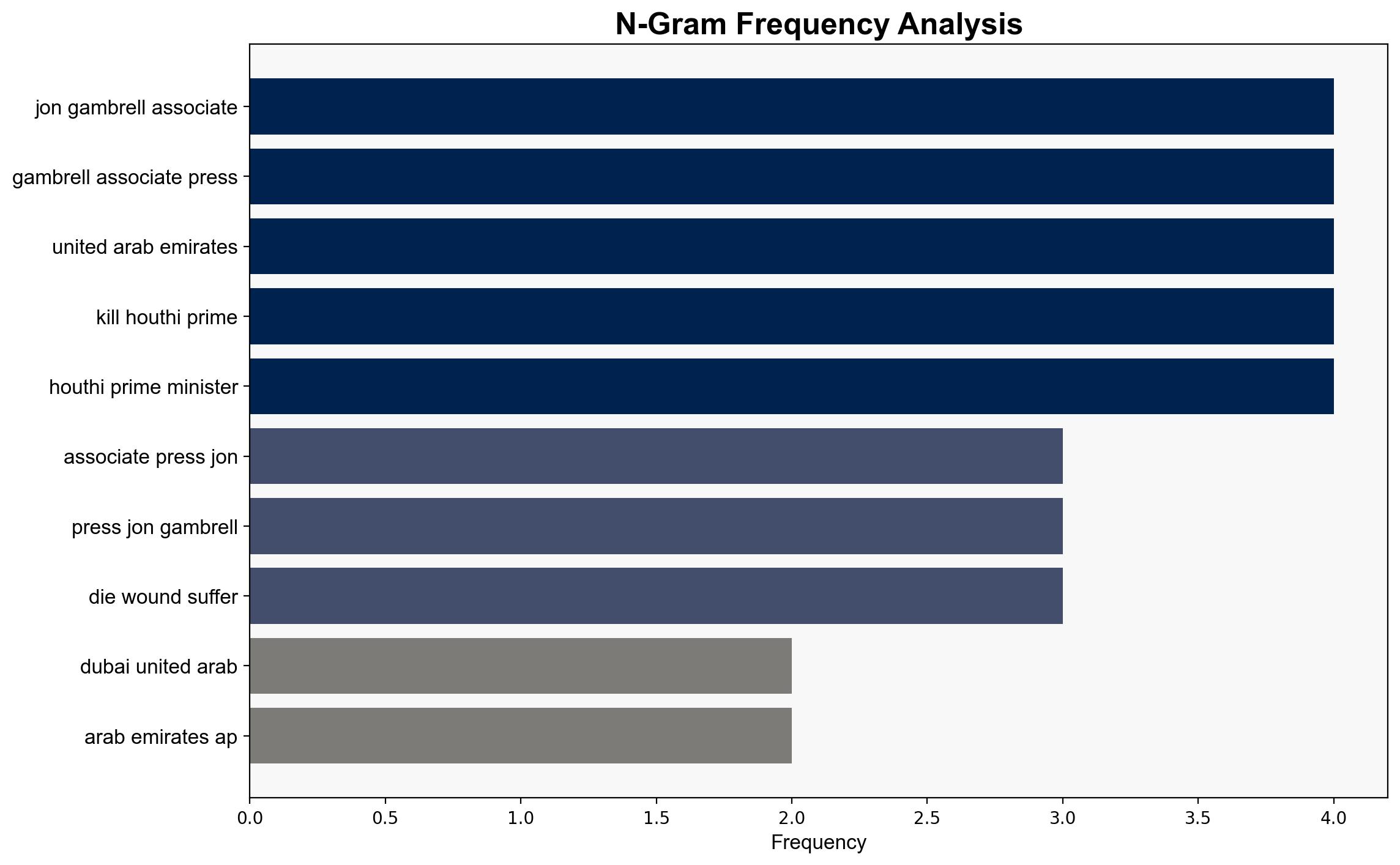Houthi rebels military chief of staff dies from wounds suffered in Israels August airstrike – PBS
Published on: 2025-10-16
Intelligence Report: Houthi rebels military chief of staff dies from wounds suffered in Israel’s August airstrike – PBS
1. BLUF (Bottom Line Up Front)
The death of the Houthi military chief of staff, Muhammad Abdul Karim al-Ghamari, from an Israeli airstrike in August is likely to exacerbate tensions in the region. The most supported hypothesis is that Israel’s actions are part of a broader strategy to deter Houthi aggression and protect its interests in the Red Sea corridor. Confidence level: Moderate. Recommended action: Monitor regional responses and prepare for potential retaliatory actions by Houthi forces or their allies.
2. Competing Hypotheses
1. **Hypothesis A**: Israel’s airstrike was a targeted action to eliminate a key Houthi leader involved in orchestrating attacks against Israeli interests, aiming to deter future threats.
2. **Hypothesis B**: The airstrike was part of a broader Israeli strategy to destabilize Houthi leadership and weaken their military capabilities, thereby reducing their influence in Yemen and the broader region.
Using Analysis of Competing Hypotheses (ACH), Hypothesis A is better supported due to the specific targeting of al-Ghamari, who was directly linked to orchestrating attacks against Israeli shipping. Hypothesis B lacks direct evidence of a broader destabilization strategy beyond the immediate tactical objectives.
3. Key Assumptions and Red Flags
– **Assumptions**: It is assumed that Israel’s primary motive is deterrence rather than broader destabilization. This may overlook potential long-term strategic goals.
– **Red Flags**: The lack of detailed information on the broader context of Israeli military objectives in Yemen raises questions. Potential cognitive bias includes confirmation bias in interpreting Israel’s actions as purely defensive.
– **Inconsistent Data**: The report does not provide comprehensive details on the aftermath of the airstrike or the immediate Houthi response, which is crucial for understanding the full impact.
4. Implications and Strategic Risks
The death of al-Ghamari could lead to a power vacuum within the Houthi leadership, potentially causing internal strife or a shift in their strategic focus. This development may escalate regional tensions, particularly if Houthi forces retaliate against Israeli or allied interests. There is also a risk of increased Iranian involvement, given their support for the Houthis, which could further complicate regional dynamics.
5. Recommendations and Outlook
- Enhance intelligence monitoring of Houthi communications and movements to anticipate potential retaliatory actions.
- Engage with regional allies to coordinate defensive measures and diplomatic efforts to de-escalate tensions.
- Scenario Projections:
- Best Case: Houthi leadership stabilizes without escalation, leading to potential peace negotiations.
- Worst Case: Retaliatory attacks by Houthis lead to broader regional conflict involving multiple state actors.
- Most Likely: Increased skirmishes and isolated incidents without full-scale escalation.
6. Key Individuals and Entities
– Muhammad Abdul Karim al-Ghamari
– Ahmed al-Rahawi
– Israel Katz
7. Thematic Tags
national security threats, counter-terrorism, regional focus, Middle East conflict





